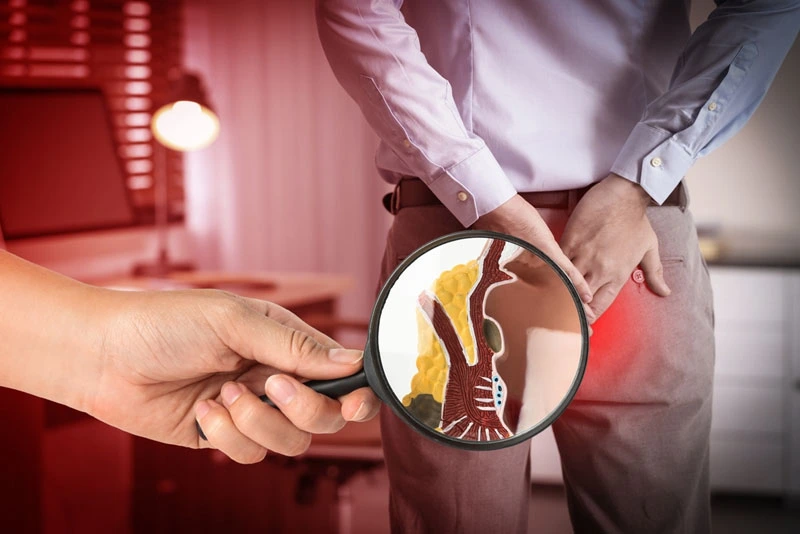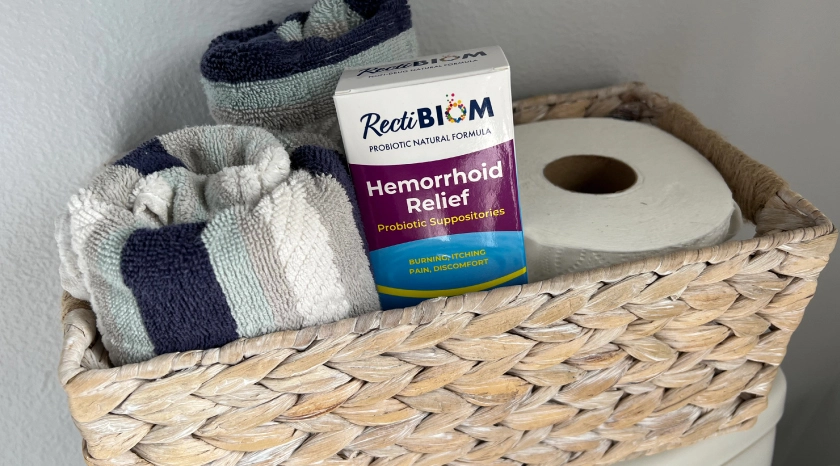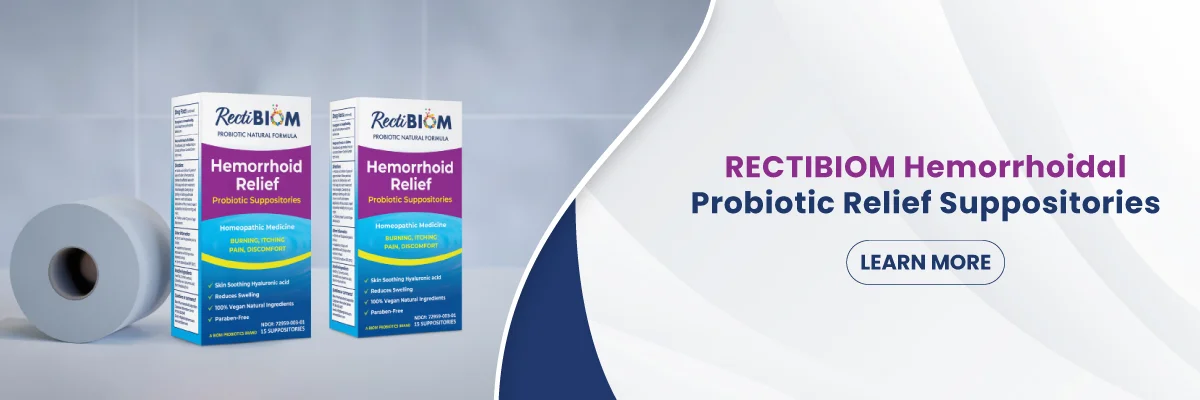The uncomfortable discomfort of Hemorrhoids is not something anyone wants to experience. However, it does occur, and here’s why it happens. The veins around your anus tend to stretch under pressure and may bulge or swell. Hemorrhoids can develop from increased pressure in the lower rectum due to the following:
- Straining during bowel movements
- Sitting for long periods of time on the toilet
- Having chronic diarrhea or constipation
- Being obese
- Being pregnant
- Having anal intercourse
- Eating a low-fiber diet
- Regular heavy lifting
Who is at risk for Hemorrhoids
Age plays a risk in hemorrhoids. This is because as we age, tissues supporting the veins in our rectum and anus can weaken and stretch. This can also happen when you’re pregnant because the baby’s weight puts pressure on the anal region.
Prevention
There are ways to help prevent hemorrhoids. One way is to keep your stools soft so they pass easily. Here are a few tips:
- Eat high-fiber foods. Eat more fruits, vegetables, and whole grains. Doing so softens the stool and increases its bulk, which will help you avoid the straining that can cause hemorrhoids. Add fiber to your diet slowly to avoid problems with gas.
- Drink plenty of fluids. Drink six to eight glasses of water and other liquids (not alcohol) each day to help keep stools soft.
- Consider fiber supplements. Most people don’t get enough of the recommended amount of fiber — 20 to 30 grams a day — in their diet. Studies have shown that over-the-counter fiber supplements may improve overall symptoms and bleeding from hemorrhoids. If you use fiber supplements, drink at least eight glasses of water or other fluids daily. Otherwise, the supplements can cause or worsen constipation.
- Don’t strain. Straining and holding your breath when trying to pass a stool creates greater pressure in the veins in the lower rectum.
- Go as soon as you feel the urge. If you wait to pass a bowel movement and the urge goes away, your stool could dry out and be harder to pass.
- Exercise. Stay active to help prevent constipation and to reduce pressure on veins, which can occur with long periods of standing or sitting. Exercise can also help you lose excess weight that might contribute to your hemorrhoids.
- Avoid long periods of sitting. Sitting too long, particularly on the toilet, can increase the pressure on the veins in the anus.

Why Hemorrhoid Relief Probiotic Suppositories?
Probiotic formulation with hyaluronic acid soothes and relieves painful hemorrhoids, itching, inflamed tissues, and other anorectal disorders.
These suppositories contain soothing natural, non-prescription ingredients, including coconut fatty acids, probiotics, hyaluronic acid, and non-stainable turmeric extract to lubricate and heal inflamed tissues.
It helps to prevent further irritation from hemorrhoid symptoms. It can also be used for effective nighttime relief for internal hemorrhoid pain and to help shrink swollen hemorrhoid tissue.
The Role of Probiotics in Hemorrhoid Management
Promoting a Healthy Gut Environment
Probiotics, beneficial bacteria that contribute to a healthy gut environment, can help manage hemorrhoids by improving digestive health. A balanced gut environment promotes soft, regular bowel movements, reducing the likelihood of straining and the pressure on hemorrhoidal veins.
Reducing Inflammation
Several studies suggest that probiotics may help to reduce inflammation in the body. By supporting a balanced immune response, the inflammation around the anal and rectal area due to hemorrhoids may be eased, reducing discomfort and itching.
Understanding Hemorrhoid Relief Probiotic Suppositories
How Do They Work?
Hemorrhoid Relief Probiotic Suppositories deliver beneficial bacteria directly to the affected area, promoting a healthier environment and helping to soothe inflammation. In addition, the hyaluronic acid in the suppositories provides additional soothing and healing benefits, while the coconut fatty acids offer natural lubrication.
When Should You Use Them?
These suppositories can be part of your daily routine to manage hemorrhoid symptoms. They are also especially helpful during flare-ups when symptoms are more intense.
Frequently Asked Questions
How does exercise contribute to the prevention of hemorrhoids?
Exercise enhances bowel motility, reducing constipation, a major cause of hemorrhoids. Promoting circulation and muscular strength, especially in the pelvic area, mitigates the risks of hemorrhoid development.
What’s the connection between obesity, pregnancy, and the risk of hemorrhoids?
Obesity and pregnancy elevate intra-abdominal pressure, leading to increased pressure on veins in the rectal area. This can cause or exacerbate hemorrhoids. Maintaining a healthy weight and managing pregnancy changes can lower these risks.
When is the ideal time to use Hemorrhoid Relief Probiotic Suppositories?
Hemorrhoid Relief Probiotic Suppositories are best used at the first signs of discomfort or inflammation. Regular use as part of your wellness routine can help maintain a balanced gut microbiome, supporting overall rectal health and preventing hemorrhoids.





